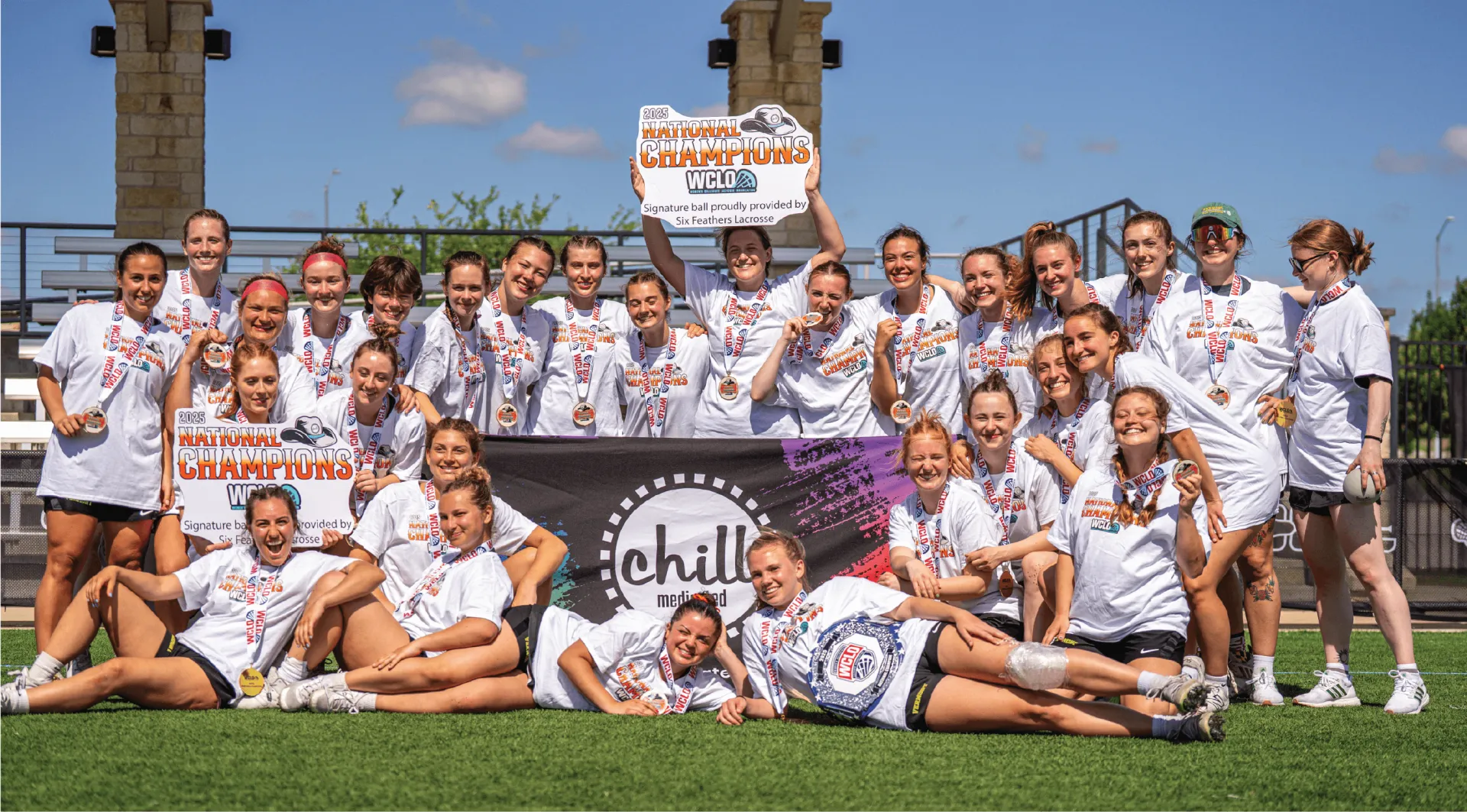A previous University of Vermont Cancer Center Summer Research Fellow and recent UVM graduate, Petra Kapsalis, found tremendous success both in the lab and on the Women’s Club Lacrosse team. Petra received numerous awards recognizing her undergraduate research and academic success including the Nicole J. Ferland Distinguished Undergraduate Research Award in 2024, the CALS Distinguished Undergraduate Research Award and successful thesis defense in 2025, and the Warren R. Stinebring Outstanding Senior in Microbiology Award in 2025. Petra graduated Magna Cum Laude this spring, majoring in Microbiology with a minor in Health and Society. Outside of the lab, Petra won National Championships with the Women’s Club Lacrosse team in 2024 and 2025, serving as team captain in 2025.
We caught up with Petra to learn more about her research and experiences both in and outside of the lab.
What made you interested in cancer research?
I have been interested in biology since high school, but specifically human cell biology. I loved learning about the cell cycle and DNA replication, transcription, and translation. My favorite part of these units where when we would learn about how errors in these processes could lead to cancer or other diseases. It was fascinating to understand how alterations in microscopic protein interactions could impact someone's health on such a large scale. This was particularly interesting to me as I hope to one day become a clinician.
My friends in high school knew this about me and one of my friends sent me an article about the Stumpff lab highlighting a recent publication with the caption “this could be you one day!”.
I knew that I wanted to do research in college and that was part of the reason I chose UVM. At the beginning of my sophomore year, I was looking for labs working on cancer research and remembered the article my friend had sent me a few years prior. Dr. Stumpff was the first Investigator I reached out to, and he responded right away. I was able to start in the lab the next semester!
Can you tell us about your research in the Stumpff lab?
My work in the Stumpff lab built off the work of previous lab members that found a key protein involved in regulating the proper division of certain cancer cells. They found that if they inhibited the protein, KIF18A, those cancer cells could no longer divide and would eventually die. This finding led to the development of a drug that inhibited KIF18A. However, some cells become resistant to this drug. My work explored possible ways cells continue to grow in the presence of the anti KIF18A drug. Understanding the resistance mechanisms could help develop another molecule that could help providers treat patients with tumors that are unresponsive to KIF18A inhibitors.
How did conducting research as an undergraduate student enhance your educational experience?
Conducting research as an undergraduate student was my most impactful academic experience! It allowed me to learn how concepts in the classroom can be applied to research and allowed me to gain skills in experimental techniques, critical thinking, and data analysis. Participating in each step of the experimental process provided an immersive experience that is not found in the classroom. I gained a deep appreciation for science and the care it takes to produce excellent research.
What was the most impactful part of your Summer Research Fellowship?
The Summer Research Fellowship was my first opportunity to conduct research full time. This allowed me to dive deeper into my project and get to experience what a full-time career in cancer research could be like.
Do you find there are any connections between being an athlete and scientist?
Throughout my time in the Stumpff lab I quickly learned that science does not always work out the way that you want it to. There is a lot of protocol trouble shooting, and unexpected results. That can be frustrating, but as an athlete I am used to practicing and working through something that may not always go right the first time. Both athletics and science involve technical skills that you get better at overtime, but you have to be comfortable knowing you won’t be good at it to start. Science and sports also intersect in that a lot of work is done that people don’t see and you can’t be successful without the support of your team.
Is there anything else you would like people to know about you and/or your research?
I am deeply grateful for the opportunity provided by Dr. Stumpff and his lab. Their unwavering support and mentorship have had a lasting impact on me, and I continue to admire them and their work!
